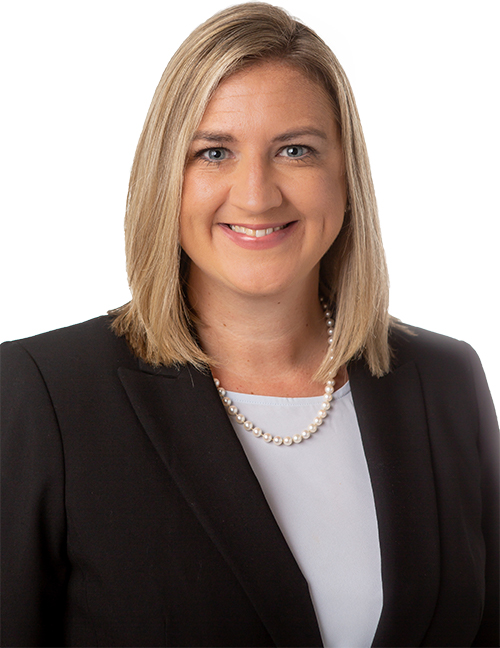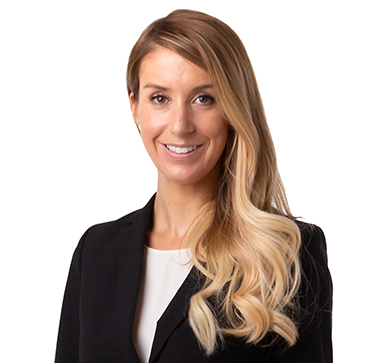Estate Planning During COVID: Advice From An Experienced Harrisonburg & Staunton Lawyer.
COVID-19 has disrupted daily life as we know it, and it’s no different for our Harrisonburg and Staunton lawyers at Wharton Aldhizer & Weaver.
COVID-19 has disrupted daily life as we know it, and it’s no different for our Harrisonburg and Staunton lawyers at Wharton Aldhizer & Weaver.
COVID-19 continues to impact small businesses in our community. Working with a highly-qualified Harrisonburg and Staunton lawyer can help.
A global pandemic, civil unrest, and a tumultuous election season have made 2020 a highly unusual year.
Author:

The Virginia Occupational Safety and Health (VOSH) Program and Virginia Department of Labor and Industry (DOLI) have put into place an Emergency Temporary Standard (COVID-19 Regulations)[i], making Virginia the first state in the United States to have mandatory workplace health and safety requirements related to COVID-19.
Why should I care about these new COVID regulations?
The COVID-19 Regulations are effective now– as of July 27, 2020–and Virginia employers must take note. These COVID-19 Regulations are complex, thorough, and impose significant requirements, some with specific deadlines. Employers who have been following CDC recommendations likely have a good start on complying with the new requirements, but must carefully compare their COVID-19 mitigation efforts to Virginia’s very specific requirements. Whether you are an essential business that as continued operations through the beginning of the pandemic, are slowing returning more workers to the workplace, or are just now re-opening, it is essential that you carefully review the new COVID-19 Regulations and implement them.
Failure to comply with the COVID-19 Regulations can result in enforcement actions, legal proceedings, and fines of $13,047 per each serious violation. Egregious or “willful” violations can lead to fines of $130,463 per violation. Additionally, employers face inspections and the time and costs of compliance if inspections occur.
Who is covered? The majority of employers with two or more employees in Virginia are covered—including almost all private and public employers, as well as non-profits.
What must employers do and when must they do it?
The COVID-19 Regulations create significant requirements with steps that must be taken (1) immediately, (2) by August 26, 2020, and (3) by September 25, 2020.
Effective IMMEDIATELY you must:
Depending on the exposure risk levels present at the workplace, the employer is then obligated to assess and comply with varying levels of engineering, administrative, work practice, and personal protective equipment controls to limit exposure. The controls that may apply are wide-ranging — from required air handling systems, to face coverings, curbside delivery, telework, flexible work hours and worksites, and/or physical barriers, among others.
By AUGUST 26, 2020, you must Train and Educate employees:
By SEPTEMBER 25, 2020: Written Infectious Disease Preparedness and Response Plan:
The COVID-19 Regulations also prohibit employers from discriminating or retaliating against an employee for complaining about COVID-19 related safety conditions or for using their own personal protective equipment in the workplace. Employers cannot prohibit employees from wearing gloves, a mask, a respirator, or a face shield, employers cannot prohibit, unless doing so creates a greater hazard to the employee or to others.
It is important to note that the COVID-19 Regulations supplement and enhance existing VOSH rules, regulations, and standards. To the extent the new standard conflicts with an existing VOSH rule, regulation, or standard, the more stringent requirement applies.
Please be advised there are provisions of the COVID-19 Regulations that are not covered in this post, that this post is a summary, and that the above examples are not specific to every employer’s situation. This post is not meant to provide legal advice. Attorneys at Wharton, Aldhizer & Weaver are available to assist with compliance, as well as VOSH inspections and/or enforcement procedures, and to answer any questions on these matters.
[i] The full text of the Emergency Temporary Standard is here: https://www.doli.virginia.gov/wp-content/uploads/2020/07/RIS-filed-RTD-Final-ETS-7.24.2020.pdf
Author:

UPDATE: On May 6, 2020, the Virginia Supreme Court (SCOVA) entered an order extending the current judicial emergency (discussed in our previous blog posts) through June 7, 2020. Like the previous Emergency Declaration orders, the May 6 Order tolls statutes of limitation and other case-related deadlines for the period of the judicial emergency (now through June 7). However, the May 6 Order provides an exception for discovery, ordering the tolling of discovery deadlines in civil cases to terminate on May 18, 2020. In practice, this means that all civil discovery with a deadline that fell between March 16 and May 18 is now due within 21 days of May 18. The May 6 Order also authorizes individual state courts, in their discretion, to resume in-person, non-emergency civil hearings where it is deemed safe. However, the May 6 Order takes a hardline stance on jury trials, forbidding all jury trials through June 7. As with the previous Emergency Declaration Orders from SCOVA, the May 6 order left open the possibility for the judicial emergency period to be further extended.
Author:

Nursing homes throughout the country have been deeply affected by the COVID-19 pandemic, making headlines as outbreaks wreak havoc within the facilities. Nursing homes have been hit particularly hard by the virus in large part due to nursing home demographics: elderly individuals, many with underlying health conditions, living in close proximity to one another creates a perfect storm of virus vulnerability. While some factors affecting the spread of COVID-19 in long term care facilities are inherent to the populations to whom these facilities cater, there are steps that nursing homes are required to take to prevent or slow the spread of the virus. Nursing homes are required to follow federal and state regulations specifically enacted to control the spread of infection. Those regulations include requirements that each facility develop and implement policies and procedures to prevent and control airborne and non-airborne infection transmission, train staff regarding infection control measures, ensure all medical equipment (including PPE) is either properly disposed (for single use items) or thoroughly disinfected between each use (reusable items).
Additionally, in the past few months, the Centers for Medicare & Medicaid Services (CMS) issued separate memoranda setting forth COVID-19-specific precautions for long-term care facilities. The memoranda recommended additional precautions and measures for infection monitoring and control, including restricting the admission of visitors, screening all residents and staff for COVID-19 symptoms and promptly isolating residents or staff members with suspected COVID-19 infections, and ensuring communication of status changes to resident representatives and/or family members. Nursing homes must follow applicable regulations and otherwise take reasonable steps to prepare for and prevent the spread of COVID-19 within their facilities.
Ordinarily, a nursing home may be civilly liable if it failed to take reasonable steps to prevent the spread of a communicable illness or infection in its facility, resulting in the serious illness or death of a resident. However, cases related to the spread of COVID-19 in nursing homes may prove much harder, if not impossible, to bring. So far, the governors in a minority of states have entered executive orders extending civil immunity to healthcare providers during the COVID-19 pandemic. While Governor Ralph Northam has not yet issued an executive order to this effect, there has been a strong push for the grant of such immunity in Virginia. On April 7, 2020, a group of medical organizations in Virginia sent a letter to the Governor, requesting the issuance of an executive order granting civil and criminal immunity to health care providers who act in good faith. If entered, the proposed order’s broad immunity would prevent virtually all medical negligence lawsuits where the alleged negligence occurred during the declared state of emergency.
Even if the proposed executive order is not entered, a patient or family member’s ability to sue a nursing home for COVID-19-related negligence may be limited in other ways. For example, a Virginia statute applicable to “disasters” provides liability protection to health care providers during state or local emergencies, if the emergency “renders the health care provider unable to provide the level or manner of care that otherwise would have been required in the absence of the emergency…” Va. Code 8.01-225.02. While this statute does not preclude COVID-19 related litigation against a nursing home in cases involving gross negligence or willful misconduct (higher levels of misconduct), it will likely prove extremely challenging to establish what constitutes gross negligence or willful misconduct in the face of an unprecedented pandemic.
While COVID-19 did not make an appearance in the central Virginia and Harrisonburg/Rockingham regions until nearly two months after the first COVID-19 case was confirmed in the U.S., it has since spread quickly in the area. As of early April, sources tracking the spread of the virus reported the number of confirmed cases growing at a rate of 690% per week in Harrisonburg. By mid-April, local news sources were reporting outbreaks in local long- term care facilities. The first reported COVID-19 outbreak in the US occurred at a long-term care facility in Kirkland, Washington and was widely reported by news sources, giving facilities in our area ample time to prepare for such an outbreak in their own facilities. Given the months of advance notice provided to nursing homes in our area, a facility’s failure to adequately prepare for such an outbreak may be harder to excuse.
If you believe you or a loved one has contracted COVID-19 at a nursing home due to the facility’s failure to follow applicable regulations and otherwise take reasonable steps to prevent the spread of COVID-19, you should contact an attorney specializing in medical malpractice and nursing home litigation to discuss your particular situation. However, as noted above, would-be litigants must understand that medical and nursing home negligence cases involving COVID-19 must be approached cautiously, and many of these cases will not be viable based on existing statutory restrictions and proposed grants of broad immunity.
Author:

UPDATE: On April 10, 2020, the Virginia Supreme Court issued a memorandum stating that Virginia state court judges may, in their discretion and with the consent of the parties, conduct any civil or criminal matter by electronic video or telephonic communication. While this memorandum is certainly not a universal green light for all civil cases to resume, it at least opens the door to the possibility that certain civil matters can proceed, with the consent of the judge and the parties.
On April 22, 2020, the Virginia Supreme Court entered an order extending the judicial emergency, and the corresponding restrictions on Virginia state courts as outlined in our original blog post on April 10, 2020, through May 17, 2020. As with the first two Emergency Declaration Orders from SCOVA, the April 22 order left open the possibility for the judicial emergency period to be further extended.
The coronavirus (COVID-19) (“coronavirus”) has impacted many Virginian’s employment and income. If you are a parent paying child support pursuant to a child support order, you may be concerned about your ability to make your child support payments during these uncertain times.
The Department of Labor issued temporary regulations on April 1, 2020 for the paid sick leave and expanded FMLA provisions of the Families First Coronavirus Response Act (“FFCRA”)
"*" indicates required fields

Contact a Harrisonburg lawyer
Hours: Monday-Friday 8:30am-5:00pm100 S Mason St
Harrisonburg, VA 22801
Contact a Staunton lawyer
Hours: Monday-Friday 8:30am-5:00pm125 S Augusta St #2000
Staunton, VA 24401
Contact a Waynesboro lawyer
Hours: Monday-Friday 8:30am-5:00pm520 Lew Dewitt Blvd Unit 102
Waynesboro, VA 22980
The experienced Harrisonburg, Staunton & Waynesboro lawyers at Wharton Aldhizer & Weaver PLC represent clients throughout the state and beyond in our many practice areas.
This website provides general information about Wharton Aldhizer & Weaver PLC. It is not intended to be nor does it provide legal advice, and use of this website, including without limitation contacting us, does not create an attorney-client relationship. Do not consider this website and any information provided through this website to be secure or confidential. Photos or other media on this website may portray people who are not lawyers, employees, or clients of Wharton Aldhizer & Weaver PLC.